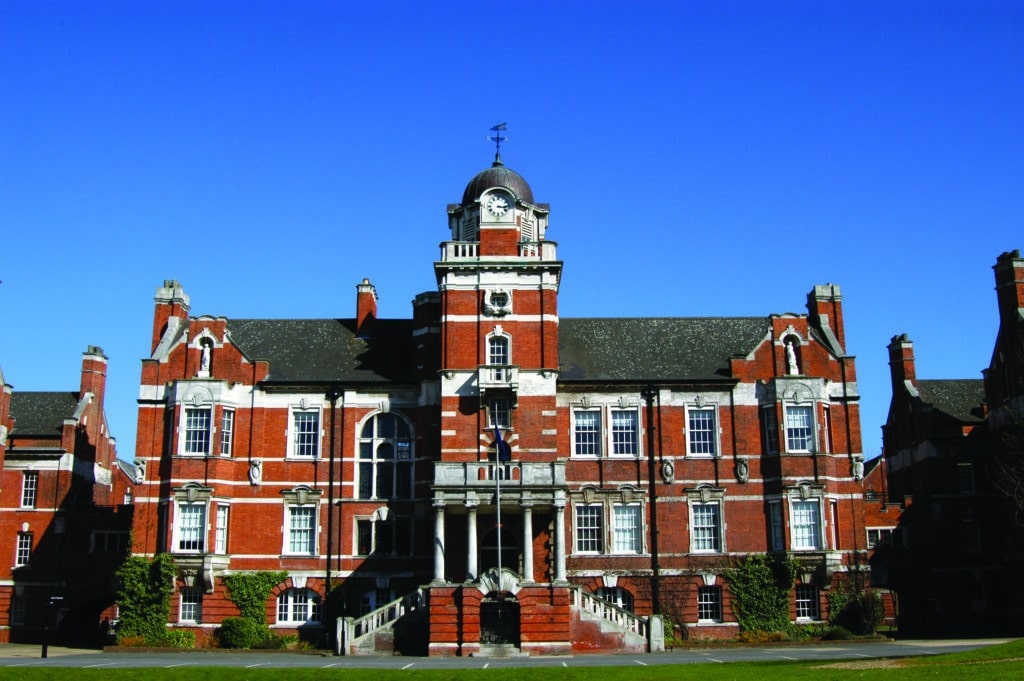A close-knit community, research-active academics and career-boosting industrial links — The School of Engineering at the University of Greenwich has them all.
Just ask Chemical Engineering graduate Shivani Aggarwal and final year Civil Engineering student Kashmalai Amjad. Both were inspired by the many impacts of an engineering career and saw how these became within reach thanks to the School of Engineering.
Growing up, Shivani enjoyed watching her father in action as an electrical engineer. When it was time for her to decide on a university degree, her interest naturally led her to study BEng Chemical Engineering — accredited by IChemE — at the University of Greenwich.
She was drawn to how it could help her build a career that plays an active and responsible role in society with her decisions, including health, environment, sustainability, economics or social growth.
“I came across an article that talked about spray-on clothing and how chemical engineers had designed aerosol cans to make this possible. I’ve been intrigued by the possibilities a career in chemical engineering could offer ever since,” she says. Shivani graduated in 2021 with a First Class Honours degree and now works as a Graduate Trainee for a global company.
Kashmalai’s motivations were similar. “My father had commercial construction projects of his own and it was the structural aspect of the Civil Engineering discipline that interested me,” she shares. She is currently pursuing a BEng Civil Engineering and working on her final year project in Microplastics.

Engineering students attend classes at the historic Medway Campus in Kent. Source: University of Greenwich
Shivani and Kashmalai attend classes at the historic Medway Campus in Kent. The campus – previously an old Royal Navy base – is now a forward-thinking institution with over 100 years of teaching excellence and home to the Faculty of Science and Engineering. In this community representing 130 countries, Shivani and Kashmalai found not just a launchpad to impactful future careers, but a home away from home.
The School of Engineering offers several programmes. These include chemical engineering, civil engineering, computer engineering and cybernetics, construction, electrical and electronic engineering, engineering, engineering management and engineering technology. Whichever programme they take, all students evolve into ethical, well-rounded global changemakers.
The BEng Chemical Engineering gives students access to teaching staff who are contract industrialists and exclusive visiting lecturers. The programme covers a spectrum of modules designed to provide students with a holistic overview of the field.
Some of the modules Shivani studied during her time at the university included thermodynamics, reactor engineering and separation processes. She was most fascinated by the Engineering Mathematics module, sharing how it “showed her how mathematics can be applied to real life situations and how it links to her industry.”
https://youtube.com/watch?v=NjDQxJoHk6Q
Experiential learning is at the core of engineering programmes here. Associate Professor in Chemical Engineering Dr. Pablo García-Triñanes believes a chemical engineering degree is nothing without its practical experiments. Hence, to strengthen support on the practical side of the course, the university recently invested in a new lab in addition to its other state-of-the-art lab facilities designed specifically for chemical engineering.
These equipment include continuous distillation, reverse osmosis, heat transfer in fluidised beds, and multivariable control or reactor engineering kits. They give students the opportunity to gain in-depth knowledge and an enriching practical experience.
The same can be said about the Civil Engineering programme. It is accredited by ICE (Institution of Civil Engineers), the Institution of Structural Engineers, the Institute of Highway Engineers and the Chartered Institution of Highways and Transportation. Speaking on why why she chose to pursue the Civil Engineering programme at University of Greenwich, Kashmalai says, “From structure, environment to geotechnics, the well-rounded module selection covers a vast subject area of the discipline.”
Becoming a University of Greenwich student means having opportunities to work on high-impact projects. Kashmalai is one of those students taking full advantage of this. Pursuing her final year project in Microplastics, she and her partner aim to improve waste management and conserve marine life by controlling microplastic concentrations in the water. At every step of the way, students like Shivani and Kashmalai have the support of their university. Student support and wellbeing services here encompass counselling as well as supporting those with learning disabilities and long-term medical conditions through the STAART initiative.
Such care is no small feat. In the 2022/23 People and Planet University League, which ranks 153 UK universities against sustainability and ethics criteria, the University of Greenwich was ranked the eighth best university in the UK.
“This is a fantastic achievement for the university,” says Vice-Chancellor Professor Jane Harrington. “To continue to rank so high on this list requires everyone in our community to do their bit and shows that the entire university is committed to tackling the most pressing issues. There is always more work to be done but this encouraging result is reflective of all the hard work of our staff and students.”
To make an impact in the world with a degree in engineering from the University of Greenwich, click here. To take a virtual tour of Medway Campus, click here.
Follow University of Greenwich on Facebook, Instagram, Twitter, YouTube.











